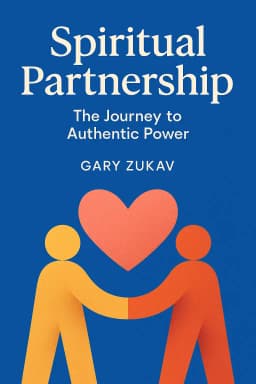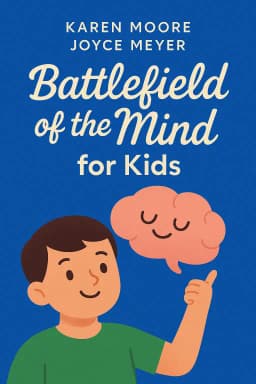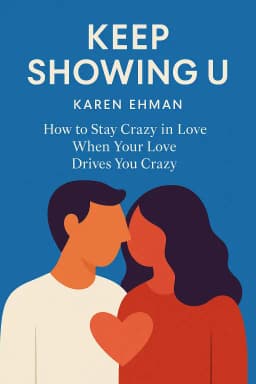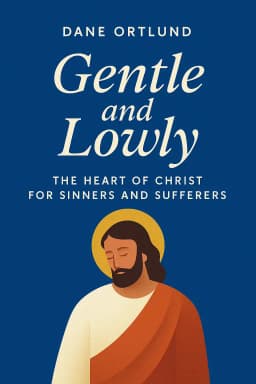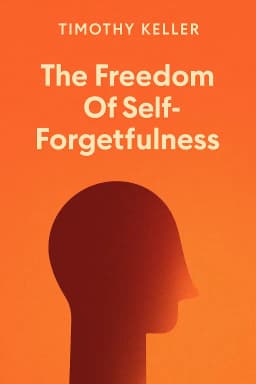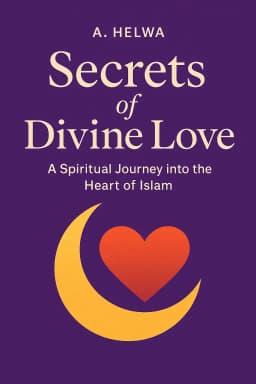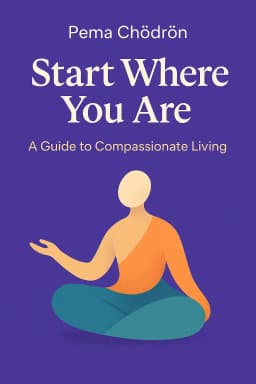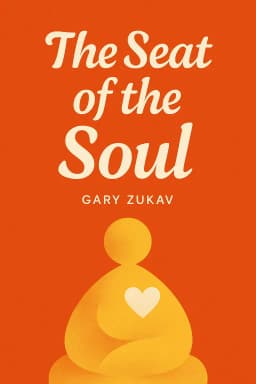
Your Soul's Operating System
Golden Hook & Introduction
SECTION
Daniel: Oprah Winfrey once said that without this book, her show wouldn't have lasted 25 years. Sophia: Wow, that’s a heavy endorsement. Daniel: It is. But on the flip side, critics have called this same book 'New Age psychobabble.' Sophia: Okay, so which is it? A spiritual masterpiece that can change the course of a media empire, or a collection of unverifiable ideas? Daniel: Today, we find out. We're diving into The Seat of the Soul by Gary Zukav. And what's fascinating is that Zukav wasn't always a spiritual guru. He's a Harvard grad and a former Green Beret officer who served in Vietnam. His first book was actually an award-winning book on quantum physics. Sophia: From a Green Beret to a spiritual teacher—that's quite a journey. It definitely explains the book's unique blend of disciplined, almost scientific language and deep mystical ideas. It’s not your typical spiritual text. Daniel: Exactly. He’s trying to build a new vocabulary for experiences that science can't quite measure. And he starts by tackling a concept we all think we understand: evolution. We all know Darwin's 'survival of the fittest,' right? The strongest, most aggressive organism wins. Sophia: Right, the dog-eat-dog world. It’s the foundation of biology, and frankly, a lot of modern business and politics. Daniel: But what if that's just the kindergarten version of evolution? Zukav argues that this is a 'five-sensory' view of the world—a reality defined only by what we can see, hear, touch, taste, and smell. He proposes we're evolving into 'multisensory' beings.
Redefining Evolution: From External Power to Authentic Power
SECTION
Sophia: Okay, hold on. 'Multisensory.' That feels a bit vague. Is that just a fancy word for intuition, or is it something more? Daniel: It's more. It's a fundamental shift in what we value. A five-sensory human pursues what Zukav calls 'external power'—the ability to manipulate and control the environment and other people. Think of a predator at the top of the food chain. That’s our old model of success. Sophia: The corner office, the bigger house, the most followers. That all sounds pretty familiar. Daniel: Precisely. But Zukav says that model is becoming obsolete. A multisensory human, on the other hand, pursues 'authentic power.' This power doesn't come from controlling others; it comes from aligning your personality with your soul. It’s about harmony, cooperation, and reverence for life. Sophia: That sounds nice, but is it realistic? The world still seems to run on external power. Daniel: Zukav would say that's the illusion. He gives a powerful example. Imagine a bustling city street. A car speeds out of control, heading for an unsuspecting person. Someone else sees it, and in a split second, pushes the person to safety, taking the impact themselves. Sophia: A heroic sacrifice. Daniel: Exactly. From a 'survival of the fittest' perspective, that action is evolutionary madness. The person who sacrificed themselves lost. But from a deeper, multisensory perspective, that act of valuing another's life above your own is the pinnacle of evolution. It’s an act of love, not domination. Zukav argues that figures like Jesus, who chose love and forgiveness even in the face of death, represent this higher form of evolution. Sophia: I see the distinction. One is about personal survival at all costs, the other is about a connection to something larger than the self. But it's a huge leap to say the entire human species is moving in that direction. Daniel: Zukav argues it's not a leap, but a necessary next step. The pursuit of external power has led us to the brink of self-destruction—wars, environmental collapse, social division. He says the pain of that path is forcing us to look for another way. He’s not saying multisensory is 'better' than five-sensory, just that it's 'more appropriate' for where we are now. It’s an upgrade in our spiritual operating system. Sophia: An upgrade. I like that. It’s less judgmental. So, if we're evolving towards this 'authentic power,' what's actually driving the car? How do we get there? Is it just about being a good person? Daniel: It's more specific than that. And this brings us to the idea that Oprah said changed her entire life. It’s the engine of this new evolution: intention.
The Engine of Reality: Intention, Karma, and Choice
SECTION
Sophia: Intention. That word gets thrown around a lot, especially in wellness circles. It can feel a bit abstract. How is Zukav's definition different from just, you know, 'positive thinking'? Daniel: It's much more precise. For Zukav, intention is the 'why' behind every single action, thought, and feeling. It's the quality of consciousness you bring to what you do. And that 'why' is what creates your reality. It's the root of karma. Sophia: So it’s not what you do, but why you do it. Daniel: Exactly. He gives a great example. Let's say you want a bigger house. The action is 'buy a house.' But the intention is what matters. Are you buying it to impress your neighbors and show off your success? That’s an intention rooted in fear—the fear of being seen as inadequate. Or are you buying it because you've adopted four children and you want to give them a safe, loving space to grow? That’s an intention rooted in love. Sophia: And Zukav is saying the universe responds differently to those two intentions, even if the outcome—a new house—is the same? Daniel: Precisely. The first intention creates the karma of fear, insecurity, and competition. You might get the house, but you'll still feel empty and constantly comparing yourself to others. The second intention creates the karma of love, nurturing, and abundance. The house becomes a source of joy and connection. Your intention is an energy you send out, and the universe sends that same energy back to you. Sophia: This makes so much sense. It's the difference between saying 'sorry' because you got caught, versus saying it because you genuinely regret hurting someone. The words are the same, but the energy is completely different. Daniel: You've nailed it. But it gets more complex. What happens when you have conflicting intentions? Zukav calls this having a 'splintered personality.' Sophia: A 'splintered personality.' What does he mean by that? Can you give me a real-life example? Daniel: He tells a story about a homeowner who catches a burglar in his house. One part of the homeowner, the charitable part, feels compassion. Maybe this person is desperate. He thinks, "I should let him go, give him a second chance." But another part, the vindictive part, is furious. He thinks, "He violated my home! He should be punished to the fullest extent of the law!" Sophia: I can feel that conflict. Most of us have both those impulses. Daniel: Right. And Zukav says that if you're not conscious of these splintered parts, the strongest one will win. In the story, the vindictive part is stronger, so the homeowner presses charges. But he's left feeling conflicted and uneasy, because he betrayed the compassionate part of himself. A whole, integrated personality is aware of all its parts and consciously chooses which one to act from. Its intention is like a focused laser beam. A splintered personality's intentions are like a scattered flashlight, with beams going in all different directions, creating chaos and inner turmoil. Sophia: Wow. So becoming whole is really about becoming aware of all those competing 'whys' inside you and making a conscious choice. But what about when you don't know your deepest intention? How do you uncover it? Daniel: Zukav says you follow your feelings. Your emotions are the breadcrumbs that lead back to your intention. If you feel anger, jealousy, or resentment, those are signposts pointing to a fear-based intention. If you feel joy, compassion, or peace, you're aligned with an intention of love. The work is to become a detective of your own emotional landscape. Daniel: And that process of uncovering your true intentions is exactly how you build what Zukav calls 'authentic power.'
The State of Being: Authentic Power and Spiritual Partnership
SECTION
Sophia: Okay, so let's define this. What does 'authentic power' actually look like? If it's not about being the strongest or the richest, what is it? Daniel: Authentic power is a state of being. It's when your personality is fully aligned with the energy of your soul. Zukav says it's characterized by four key qualities: humbleness, forgiveness, clarity, and love. It’s not about force. He uses a brilliant historical contrast: think of the immense external power of the Roman armies. They could conquer nations. But their empire crumbled and vanished. Sophia: And the contrast? Daniel: The enduring spiritual force of a single, unarmed human they put to death. That individual's power—their message of love and compassion—has shaped human history for two millennia. That, for Zukav, is authentic power. It’s not about what you can control, but what you stand for. Sophia: That's a powerful image. But this is also where some of the controversy around the book comes in. Critics have called these ideas 'New Age psychobabble' and point out that they lack scientific proof. Daniel: And that's a fair point from a five-sensory perspective. Zukav himself, coming from a science background, acknowledges this. He's not trying to prove the soul exists in a lab. He’s offering a framework for those who feel that the five-sensory world is not the whole picture. Sophia: I have to push back on the karma part, though. Zukav's ideas can be interpreted as blaming the victim. If you're suffering—say, you're born into poverty or you get a terrible disease—his framework suggests your soul 'chose' this for a lesson. Isn't that a dangerous and dismissive idea? Daniel: It's the most challenging and easily misunderstood part of the book, and the criticism is valid if the idea is applied superficially. Zukav's perspective, however, is about empowerment, not blame. It’s about shifting from the mindset of a victim of random, cruel circumstances to a conscious participant in your own evolution. The question isn't "Why is this happening to me?" but "What is this situation offering me the opportunity to learn?" Even in the most horrific circumstances, you retain the power to choose your response: to respond with fear, hatred, and vengeance, or to try, however difficult, to respond with compassion, forgiveness, and love. That choice is the source of authentic power. Sophia: So it’s about reclaiming agency in your inner world, even when you have no control over the outer world. Daniel: Exactly. And this inner shift transforms everything, especially our relationships. Zukav argues that the old model of marriage, which was often based on survival, security, and social roles—all forms of external power—is evolving. Sophia: Into what? Daniel: Into what he calls a 'spiritual partnership.' This is a relationship between two equals who are committed to each other's spiritual growth. They use the relationship as a laboratory to help each other identify and heal their fear-based patterns. They hold each other accountable for living with authentic power. It's a partnership of souls, not just personalities. Sophia: That sounds both incredibly beautiful and incredibly challenging. It requires a level of honesty and vulnerability that most relationships don't have. Daniel: It does. It requires you to see your partner not just as a person who fulfills your needs, but as a soul on its own journey, and your role is to support that journey as they support yours. It's the ultimate expression of living with authentic power.
Synthesis & Takeaways
SECTION
Sophia: So, it's a radical shift in perspective. Instead of trying to control the world outside of us—our jobs, our relationships, other people's opinions—the real work is to align the world inside of us. Our intentions, our choices, our responses. To align all of that with the soul. Daniel: Exactly. The entire book is a roadmap for that journey. It’s about moving from a life driven by the fears of the personality to a life guided by the wisdom of the soul. Sophia: It’s a huge undertaking. For someone listening who feels inspired but also overwhelmed, what's the first step? Daniel: Zukav says the first step is simple, though not easy. The next time you make a choice, even a small one—what to say in a text, whether to get angry in traffic, how to respond to a colleague—ask yourself: 'What is my real intention here? Am I choosing from fear, or am I choosing from love?' That single question is the start of the entire journey. Sophia: That's a powerful question to live with. It puts the responsibility, and the power, right back in your own hands. We'd love to hear what you think. Does this resonate with you, or does it feel too abstract? Find us on our socials and share your thoughts. Daniel: This is Aibrary, signing off.
